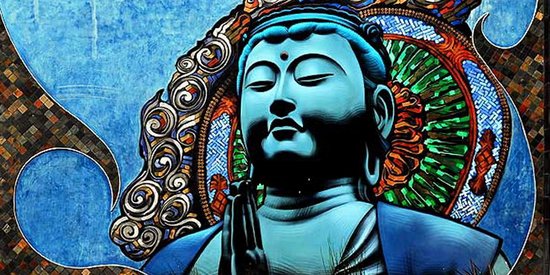Buddhism, a philosophy of happiness?
Is Buddhist wisdom a philosophy or a religion, or is it both? Buddhism is the object of all kinds of controversies: it is not a religion but a philosophy. Or we could simply see wisdom through it: Buddhist wisdom. This fascinating article offers an enlightening and illuminating view of Buddhism, in order to restore its strength and refine its knowledge, thanks to the enlightened gaze of Matthieu Ricard. Of course, another of the most influential personalities in Tibet, the Dalai Lama, the "Ocean of Wisdom," a high spiritual authority in the world of Buddhism, can guide us towards gaining an ocean of wisdom, as his name in Tibetan Sanskrit indicates.
Shrouded in an authentic veil of mystery, how did the Buddha's teaching leading to emptiness, cross the continents?
Buddhism was introduced in Tibet around the 8th century, and this took 150 years. At that time, it took a lot of effort to translate the scriptures. They were all translated into Tibetan at first, all the translations of these scriptures were then translated into Korean, Japanese, Cambodian, French and English. It can thus be said with confidence, that the Buddha's teaching and Buddhist wisdom have now spread to the four corners of the universe.
Buddhist wisdom as a way of life and thinking!
It is with great kindness that Lall, a 35-year-old Tibetan living in France, enlightens us. “My whole family and I are Tibetans, and we are Buddhists. We believe in reincarnation. If I can give you a simple explanation of karma and its meaning, our entire life is a learning process. In a way, karma is a conditioning and not a question of fate. In Buddhism, we assume that we are not free with our behavior, because will and desire are dependent on the sum of our actions. Buddhism offers itself through and by means of different kinds of awareness, so that person can free themselves from this conditioning, thus allowing a person to act, not only knowing the cause, but with the acceptance of this karma.
Buddhist wisdom is a path of practice and spiritual development leading to insight into the true nature of reality. All the practices of Buddhist wisdom, such as meditation, are a means of accomplishment, in order for us to develop and harmonize consciousness, and feelings such as kindness, wisdom, compassion, and benevolence.
Buddhist wisdom is simply an inner art, where considering compassion as a human emotion is the point of intersection between individual happiness and social happiness. Buddhism shows us lasting values in this impermanent world, brings us back to fundamentals and to the reality of things. Thus, Lall shows us that cultivating an in-depth awareness of humanity, remains the most direct and powerful way towards the path of compassion and this way of life.
Lall, imbued with a luminous wisdom and anxious to avoid pure religious or philosophical speculation, remains pragmatic and completely in tune with our times.
So, can we ask ourselves what are the essential points that define Buddhism? According to the Buddha himself, is this the teaching of happiness?
In this incarnation, could the positive effect be that compassion can lead us onto the road to happiness itself?









